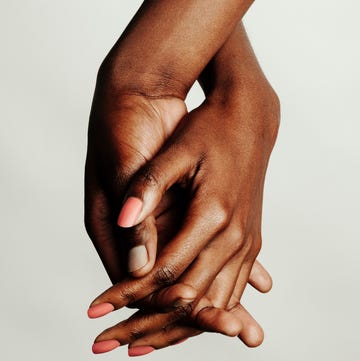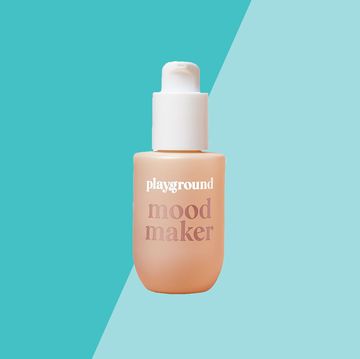Whether your ex abruptly broke it off, you were the one who finally ended things, or the split was amicable, the end of a relationship is never easy—even if it’s the right thing to do.
But suffering from a broken heart in the wake of a relationship can be one of the most painful, debilitating experiences a person can go through, says Suzanne Degges-White, Ph.D., chair of the department of counseling and counselor education at Northern Illinois University. And spending days, weeks, and even months feeling sad can lead you to wonder: Exactly how long does it take to get over someone?
As it turns out, relationship experts have an answer—and some advice. Read on to learn how long it takes to truly move on, what you can do to speed up the healing process, and how to rebuild your sense of self without your ex.
Be honest: How long does it really take to get over someone?
Multiple factors can influence how long it takes to move on from your past relationship, from the circumstances of the breakup to where it leaves your ego, strength, and spirit, says Degges-White.
Usually, how long you were in the relationship impacts how long it takes to get over someone. “For the most part, the longer you’ve been in a relationship and the more committed you felt it to be, the longer it might take before you’re ready to start seeing other people again,” she says.
But if you really want to put a number on it, one study published in Clinical Psychological Science of people who recently went through a breakup found it took three months to feel significantly better, shares Gary Lewandowski, Ph.D., a psychology professor at Monmouth University who gave the TED Talk, “Breakups Don’t Have to Leave You Broken.”
Of course, you shouldn’t feel bound by numbers. Moving on may only take you a few weeks, three months, or well past then. It’s OK to heal at your own pace, so don’t go out on dates simply because your friends or family are pushing you to put yourself out there again, says Degges-White. If the idea of going out with someone new makes you feel unwell (rather than butterflies-in-the-stomach) or if you find yourself repeatedly stacking up would-be partners against all your ex had to offer, it’s not time yet.
How can I heal from my split in a positive way?
Still in the rebound phase? Experts suggest the following healthy strategies for getting back on your feet and feeling better after a breakup.
1. Call your friends.
If you’re struggling with your breakup, consider calling up your friend who recently went through a divorce or the one suffered from a big-time breakup in college. They might have priceless insight. Plus, when you hear how other people weathered their splits, it normalizes your reaction and helps you begin to imagine that you can get through it too, explains Degges-White.
2. Make a clean break on and offline.
In the days and weeks following your split, it’s normal to find yourself scrolling through your ex’s Facebook or Instagram (in fact, some 80% of us admit to doing it, per a 2017 study in the journal Sex Roles.) Unfortunately, though, stalking won’t help you move on, says Degges-White. What to do, especially if you don’t want to: Block, unfriend, and unfollow your ex, and delete their number—at least for the time being (nothing needs to be permanent!).
Don’t try to "run into them" by re-visiting old haunts either, advises Lewandowski. “Avoiding these situations allows you to move on without tempting yourself with rekindling the relationship,” he explains. Because, remember: You broke up for a reason (something was broken).
3. Keep yourself busy.
Think back: Before your relationship, what did you like to do with your free time? Whether it’s making art, going on long hikes, cuddling up with a book, or binge-watching your favorite show, getting back to the activities you loved pre-relationship helps you put the focus back on yourself as an individual, rather than one-half of a couple, and can help you land on your feet post-relationship, says Lewandowski.
New experiences also take up space in your mind and life, allowing you to stop rumination from taking over, says Degges-White. One good way to spend that time: Sign up to volunteer for a cause you care about. Research shows volunteering can significantly boost your mental and physical health, satisfaction with your life, and self-esteem. If you’re an animal lover, for example, working at your local animal shelter and bonding with dogs and cats can work wonders for your heart, notes Degges-White.
4. Get moving.
Even if it’s just a long walk with your headphones on, getting out of your blanket-and-comfort food cocoon can be one of the best things you can do for yourself when feeling down. An upsurge of feel-good chemicals such as endocannabinoids, brain-derived neurotrophic factor (BDNF), and serotonin help lift your mood, per a recent article in Frontiers in Psychology. Even better? Connect with new people (and fill some of the space and time your ex used to take up) by taking a daily stroll through your neighborhood, trying a new class at your gym or yoga studio, or even joining a sports team or running group.
5. See a therapist.
Finally, if it’s been several weeks and you’re still down, skipping out on social gatherings you used to love, or just not quite back to what you’d consider normal, you may benefit from the coping strategies and fresh perspective a professional can provide, says Degges-White. A therapist can help you take a more objective look at your past relationship, work through what it meant and didn’t, learn how to validate your own self-worth without relying on a partner, and build a strong foundation for a new relationship—when you’re actually ready for that (no rush).
You can find a psychologist near you through the American Psychological Association’s handy locator or your employer’s Employee Assistance Program (EAP) counselor, suggests Degges-White.
Like what you just read? You’ll love our magazine! Go here to subscribe. Don’t miss a thing by downloading Apple News here and following Prevention. Oh, and we’re on Instagram too.

Cassie Shortsleeve is a skilled freelance journalist with more than a decade of experience reporting for some of the nation's largest print and digital publications, including Women's Health, Parents, What to Expect, The Washington Post, and others. She is also the founder of the digital motherhood support platform Dear Sunday Motherhood and a co-founder of the newsletter Two Truths Motherhood and the maternal rights non-profit Chamber of Mothers. She is a mom to three daughters and lives in the Boston suburbs.












